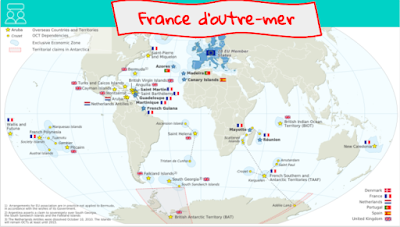When I came to the U.S. in 2005, I had a big choice to make- to continue with my teaching career or undertake another field of studies such as engineering or nursing.
I had credentials as a French and Bulgarian teacher from Veliko Tarnovo University in Bulgaria, as well as four years of experience as a French and Bulgarian teacher under my belt. In addition I had started a Master's degree in English language and literature, which I did over a period of two years in the weekends, while working as a teacher. My father would drive me to the train station early Saturday morning. I would ride the train for an hour and a half to Plovdiv, where the university where I was doing my program was, and then would go back home at night. I would repeat the same on Sundays, while working a full time job as a teacher in Stara Zagora during the week. It was a lot of work, but what else a twenty and something year old to do with her time :). I was filled with energy and ambition and it was the perfect time to get more education. At the time I came to the United States, I had one semester left until completing my Master's in English, which was going to enhance greatly my employment prospects in Bulgaria.
Plovdiv University, 2004
I opted to continue my teaching career in the states and to add an endorsement in Spanish to my teaching certificate. You can tell that my passion and what I really enjoy is acquiring languages. I made the choice to devote my career to teaching languages once again.
First, I had to take the TOEFL exam, in order to prove that I have good enough skills in English to take college level classes. I took a TOEFL course at Wayne State University in the fall of 2005, then passed the TOEFL exam and was given the thumbs up to sign up and take my first General Education classes at Washtenaw Community College in Ann Arbor.
I got married, acquired my green card and in January of 2006 I signed up at the local community college to take the required General Education classes, such as math and science, which I did not have in my diploma from Bulgaria. At the same time I started my first job as a teacher assistant in a private Montessori school in Ann Arbor. I liked taking classes and soon after I started my first classes in Spanish.
After I finished the General Education classes, I signed up to take an Educational Psychology class (also required) at Eastern Michigan University.
Then I requested a transcript of my diploma from my Alma Mater at Veliko Tarnovo University, translated it through a Bulgarian Translation Agency and submitted it to the ECE website, which transferred my Bulgarian credentials into the American system and issued a document with the university credits that I have taken during my Bachelor's and Master's Degree education in Bulgaria.
After I took all of the required courses, I was ready to apply for a Teaching Certificate. However, I also had to take the Michigan Teaching Certification Exam MTTC .
At the end I submitted all of my transcripts, including the community college and the Eastern Michigan University transcripts, the results from the MTTC tests to the MOECS website, and they issued and sent me a Teaching certificate with endorsements in French (6-12) and in Other (aka Bulgarian) (6-12).
All in all by the end of 2006, I was certified to teach French to grades 6 through 12 in Michigan. However, I decided to wait until I added a K-12 Spanish endorsement to my teaching certificate, which I did through Eastern Michigan University, before applying for my first teaching job in Michigan in the fall of 2008.
This was my path towards becoming a WL teacher in the United States. It was not easy at all, but I am grateful for my education and for all of the opportunities that came with it. As people say, they can take away everything from a person, but they cannot take away their education. I appreciate the education I got and consider it my greatest asset to this date.
If you find this information useful or have any questions regarding the content of this post, please feel free to comment in the comment box below and to subscribe to my blog.
You could also support me through my page at Buy Me a Coffee.







